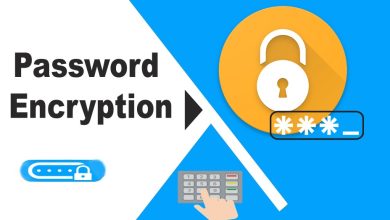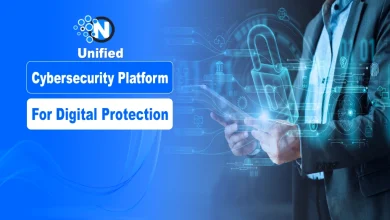Why Data Security Is Non-Negotiable in High-Stakes M&A Deals

Mergers and acquisitions involve multiple risk factors, which make these transactions tricky and risky. One of the biggest challenges for modern-day dealmakers is to mitigate cybersecurity threats. More and more businesses are moving to online channels for dealmaking, which is a positive move. The risky part about digital platforms is that they are more prone to data theft and leaks.
Data security is a non-negotiable factor in M&A deals. It not only shows a company’s commitment to standard security practices but can have legal consequences as well.
In this blog post, I will shed light on the importance of data protection in M&A transactions and how advanced tools like virtual data rooms can help.
Top 5 Reasons Why Data Security Is Important in Mergers and Acquisitions
1. Sensitive data protection
The first and most important reason to have strong security measures in M&As is the vulnerability of sensitive corporate data. Mergers and acquisitions involve a thorough analysis of sensitive company data like intellectual properties and financials. Protecting such information from falling into the wrong hands is necessary. Data leaks can be very costly, as the average cost of a data breach is near $5 million.

2. Avoidance of hidden liabilities
Strong data protection practices in the seller company are important for potential buyers. Imagine acquiring a company with undisclosed security breaches or weak cybersecurity practices. Doing so will transfer the risk to the buying company. This can even lead to lawsuits and loss of customers’ trust.
3. Ensuring business continuity
Any cybersecurity threats during mergers and acquisitions can affect operations. For example, weak cybersecurity practices will create room for threats like ransomware and system breaches. These issues become prominent during the integration phase and can affect business operations.
4. More negotiation power
A company with strong data security systems will definitely be in a stronger negotiation position. In fact, advanced data security systems nowadays help businesses build a competitive edge over their competitors. On the contrary, a company with a vulnerable security mechanism loses its negotiation power.
5. Compliance with regulatory requirements
Businesses need to follow the standard regulatory practices defined by related authorities. For instance, companies operating in Europe need to comply with GDPR standards. Good compliance history strengthens a company’s position, and it is a necessity as well.
What are Virtual Data Rooms and How They Ensure Security During M&As
Virtual data rooms are secure online data management platforms commonly deployed for safe and fast data sharing during M&As and similar business deals. Data rooms also minimize manual input and eliminate work duplication. They ensure safer and seamless collaboration between all involved parties.
“High-end virtual data rooms are the forefront of modern-day dealmaking. They ensure M&A transactions go smoothly and safely, and provide everything in a single place. Companies that use virtual data rooms during M&As will definitely have an edge and can boost deal chances by dealing with multiple buyers at once,” says Elisa Cline, marketing specialist.
You can explore top data room vendors for M&As at https://datarooms.org/ma-data-room/
A high-quality virtual data room protects your data because of its amazing security features. Here are some of them.
1. Restriction settings and document permission
Virtual data rooms give you complete control over M&A data. It includes features like view-only mode, which ensures that an unauthorized user cannot copy or download the documents. Moreover, the admin panel can set further restrictions on who can or cannot view a specific part of any document.
2. Solid encryption methods
Modern-day data rooms offer an encryption feature. Encryption is a process in which you can encode the data before moving it into cloud storage. Advanced encrypted data room solutions make sure the data is encrypted when shared and at rest.
3. Two-step verification
Two-step authentication is another great security feature to keep intruders at bay. The user can access the data room after entering the password and going through another security check, such as additional factual information or a code. That means, even if the password is compromised, the hacker will have to go through another security check.
4. Digital watermarking
Digital watermarks are basically embedded markers (such as texts, audios, images, videos, etc.) that work as identification of data’s ownership. Digital watermarks allow you to keep a record of who made changes in the data room and when. High-quality virtual data rooms have static and dynamic digital watermarking.
5. Audit logs and compliance
Audit logs are basically detailed reports on complete user activity in the virtual data room. It helps the management to monitor the user activity in the data room. Audit logs are an important feature for maximum transparency in transactions and are useful for audits.
What’s more, global data room providers strictly comply with regional and international security standards. Common VDR compliance standards include GDPR, ISO, FINRA, and HIPAA.
6. User IP, location, and device check
Although it is a standard feature, it is helpful in maximizing data security as the administration knows the location, IP, and device details of everyone who logs into the data room.
7. Remote device purging
Do you know that you can protect your VDR data even if you lose a device connected to the data room? The remote purging feature allows the data room management to purge or delete a device from the VDR and all the data room files inside it.
Final Thoughts
Data security plays a vital role in mergers and acquisitions as it defines a company’s commitment to standard practices and gives it a solid edge during negotiations. Data security is also a regulatory requirement, and virtual data rooms help companies achieve the desired security levels during these transactions.




